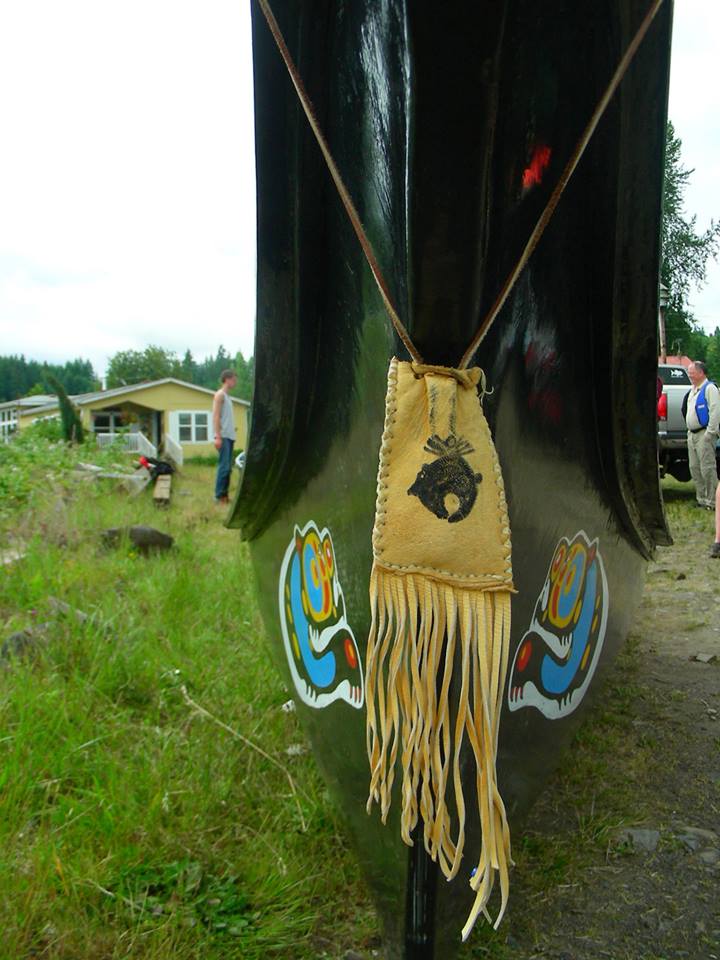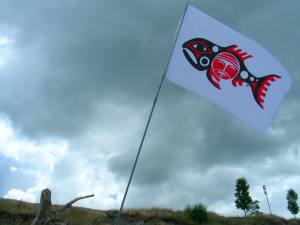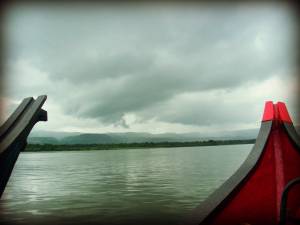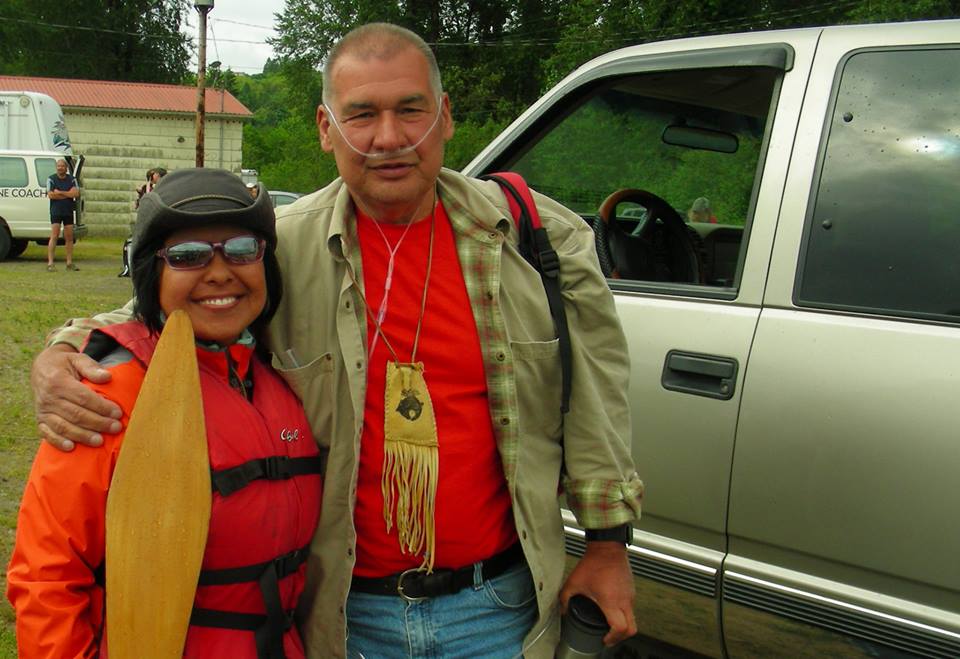The journey is what we enjoy. Being part of the journey requires great preparation; being done with a journey requires great awareness; being on the journey, we are much more than ourselves.
-- Ten Rules of the Canoe (Quileute Canoe Contingent, 1990)
Reflecting on our life path is a natural thing, especially around our birthdays. I've been through a lot this last year on both emotional and physical levels. The one lesson that keeps coming back regardless of age, is that life offers you exactly what you need, when and how you need it. That's not always an easy pill to swallow. Recognizing and embracing wherever you are in life -- whether good or bad -- is a courageous yet, necessary step for one's personal growth.
This was a lesson relearned on a recent adventure.
Earlier this year I was invited to join the Chief of the Chinook Nation, Ray Gardner, on a paddle down the Columbia River in his family canoe, Itsx̣ut. Let me assure you this isn't a mere canoe trip and to be invited is an honor.
Chinook Tribal Members make this journey to celebrate the river known as, "Yaikatl-Wimakl," and to honor their ancestors. Naturally, the adventurer in me saw this as the perfect way to ring in my 40th year, but in the end, the journey took on much more meaning than I could've ever imagined.

I love the water and have some experience paddling, but 100+ miles and 12-hour days is quite a different story. The muscle spasms in my shoulders hurt like hell and the tightness in my back from long hours of sitting made me want to quit. All the time.
I was determined to make it through.
Quite frankly, Chief Ray was my inspiration. He's a living example of going beyond what many deem unachievable. Diagnosed with Idiopathic Pulmonary Fibrosis (IPF), he lives on supplementary oxygen. He's tired and worn not just from his condition, but from the fact that the Chinook Indian Nation remains unrecognized by the U.S. Government. For years he's testified to Congress championing the Chinook Restoration Act. His passion and commitment has garnered the attention and support from former Congressman Brian Baird and Senator Maria Cantwell.
It's truly disheartening and unimaginable to not be recognized and valued with all the dignity, rights and privileges that all human beings deserve. Sadly, this isn't anything new. I thought of my own people. The constant struggles of Hispanic immigrants. The challenges my own parents faced. Our stories aren't that different.
If you're unfamiliar with the Chinook story, here's a glimpse:
The Chinook people have inhabited what is now southwestern Washington and northwestern Oregon for thousands of years. Living at the mouth of the Columbia river, they were expert tradesmen accustomed to European explorers. In 1805, they sheltered a very weary Lewis and Clark. Despite being one of the most well-documented tribes in Pacific Northwest history with a present-day vibrant community, they are considered nonexistent.


Chief Ray exudes a sense of tranquility and contentment that's unreal. A quiet and observant man, behind the smile is a fierce warrior strengthening his community by teaching and maintaining tribal culture, language and traditions. There's no anger or resentment for what he hasn't accomplished in life. He experiences life exactly how it's presented to him.
There's a tribal belief that you must never let anything enter the canoe that doesn't belong. That can include dirt, unnecessary materials and... emotional baggage.
BAM! I finally understood my dilemma.
As I stated earlier, I've had some hard times this last year and I was still hanging on to that emotional baggage. As a result, I was unable to see my greater purpose. Focusing on the destination rather than the journey, I wanted to just "get there," fast and painlessly. And if I'd gotten there (geographically and metaphorically speaking) effortlessly and painlessly, then what?
Every stroke of the paddle took on new meaning. It became clear. This journey was about my own ancestors, traditions and struggles. I was there to honor them and remember their path.
Don't get me wrong -- it's not like I forget who I am or where I come from -- it's just that dark times tend to fog one's perspective. I'm here because of my ancestors. Their struggles, challenges and discoveries provided the opportunities I have today: a privileged life in comparison. This experience was meant to ground me. We all need a humbling moment from time to time.
 Chief Ray always reminds me how important and healing it is to be on the waters, or as he calls it, "The Ancestors Highway." I thought about this a long while and realized, indeed it was. The pain, fellowship, prayers to the Creator, songs to the Ancestors, sacred ceremonies and traditions. All of it healing to my body and soul. All of it part of life's journey. That's the adventure!
Chief Ray always reminds me how important and healing it is to be on the waters, or as he calls it, "The Ancestors Highway." I thought about this a long while and realized, indeed it was. The pain, fellowship, prayers to the Creator, songs to the Ancestors, sacred ceremonies and traditions. All of it healing to my body and soul. All of it part of life's journey. That's the adventure!
Al-mughamara! -- Carla
